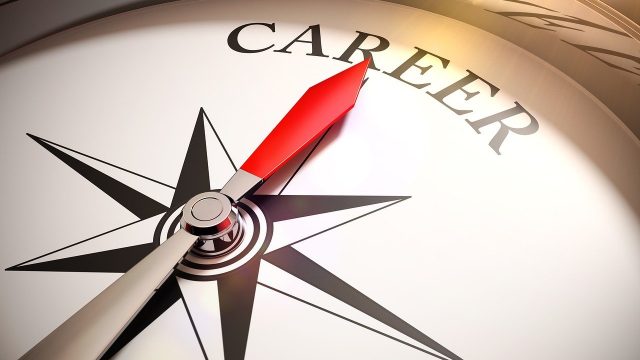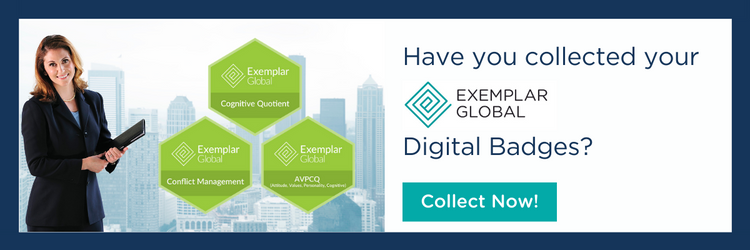Chris Van Zyl is a multi-skilled SHEQ specialist at Omnia Holdings. He is an Exemplar Global-certified lead auditor of integrated management system standards based on ISO 45001, OHSAS 18001, and OHSAS 14001. His background allows him to provide high-level advisory leadership in all areas of safety, health, environmental, and quality to ensure compliance to company, industry, and legislative standards.
In this conversation, we discussed his introduction to ISO standards, the specific realities of auditing in his geographical location, and the skills that auditors need to embody.
EXEMPLAR GLOBAL: Can you provide an overview of your background and how you got started in this part of your career?
CHRIS VAN ZYL: I’m currently 49 years old, and I was born and raised in South Africa. Early in my career, I started working in the mining industry, where I first was introduced to ISO management system standards. We had contracts with Anglo American, AngloGold, Anglo Coal, and BHP Billiton, all of whom were ISO-registered mining companies. So, to better understand these management systems, I started doing some basic training on ISO standards. In fact, I studied further and qualified myself specifically in the mining industry, where I worked exclusively for almost eight years.
Around this time, I was offered a project management position in Saudi Arabia, also in the mining industry. I was on contract there for a bit more than a year and a half before returning to South Africa.
I then joined Omnia Fertilizer, which is a global company, where I started working in the health and safety department. Because Omnia is certified to three ISO standards, part of the requirement for me was to become, first, a qualified internal auditor, and later, a certified lead auditor. That was part of the requirement for doing this work and maintaining Omnia’s ISO system. After a good bit of training, I became certified as a lead auditor in 2018.
EG: What were your feelings about the utility of these standards when you began to audit?
CVZ: When I first learned about ISO standards during my days in the mining industry, I had some experience being on the other side of the table, being audited myself. I realize that most people have a negative connection with being audited, and at that stage, I felt the same way. You have to remember that in the old days, auditors were basically doing fault-finding, just writing down findings. When I started auditing with Omnia, I began to understand that the negative connection regarding the auditing function comes from that old way of doing things. The newer way, which involves helping, coaching, and making the system work, is much more effective. As I took that approach, I was able to let auditees understand that we are there to add value, not to simply find faults and name and blame everything and everyone. We’re there to add value and to make sure the system grows and improves.
I really enjoy auditing, although it’s just a part of my day-to-day job. I’ve got a bit of a funny personality in that I tend to see things other people don’t see. It’s nice to add value to somebody else’s work, especially if it’s something major that they’re missing. Many times, people get so used to what they’re working on that they don’t always see the problems in the big picture. My auditing experience helps the team at Omnia make small changes, which makes things much better and easier for everyone. One of the best things about having auditing qualifications is it has given me the ability to help prevent something from going catastrophically wrong.
EG: That nicely defines the auditor perspective, to be the person who looks at processes with fresh eyes and hopefully helps people enjoy positive outcomes like improved processes, more efficient work, and better safety.
CVZ: I agree, mostly because I have a bee in my bonnet about safety. If I see something wrong in a facility but I don’t say anything, and then at some point later something catastrophic occurs, it was my fault because I could have done something about the issue. I’m a big guy physically, and between that and the authority I’ve got from senior management, when I see something that’s not right, I stop everything right there and then and we fix it. I’ve learned that the issue you leave unresolved today becomes tomorrow’s regret, which can turn into next week’s fatality. And no one wants that, of course.
EG: How has Exemplar Global helped your career within your geographic market and industry sector?
CVZ: Here in South Africa, Exemplar Global has got a very good record and name. No one questions the way they do things. To be an Exemplar Global-certified auditor, you must have the right knowledge and credentials. Sometimes external auditors come in and audit us, and they challenge some of our internal findings. I respond by showing them my Exemplar Global registration, telling them why I don’t agree with them, and explaining how I see things. Being internationally registered as an auditor with Exemplar Global gives me more ability to stand my ground and get a fair hearing. Having that certification and being part of the Exemplar Global brand makes a difference.
EG: We touched on this a little bit earlier in our chat, but can you share a bit more about some of the training opportunities you’ve availed yourself of?
CVZ: My initial training was done internally with my employer at the time, just to get used to their systems. When I started with Omnia, I found that they strongly believe in doing external training. All the formal auditor-specific training I’ve received has been external.
At this stage, most of the auditing that I’m doing is for our company itself, but every now and then I do some audits with external people, just to make sure I keep up to date with what is currently happening in the industry. This also helps me better understand how other organizations are interpreting the standards. Because you only get used to the way you are doing things, if you’re not exposed to other perspectives you’ll get left behind.
EG: Finally, what advice would give to people that are coming into the auditing profession?
CVZ: First and foremost, make sure you’ve got thick skin. [laughter] A good auditor must be able to clearly say what is wrong in an organization’s management system according to the language of the standards—but you must do it in a positive way. If you can’t handle conflict in a positive way, I don’t think auditing will be a long-term option for you. You’ll quickly start to hate it.
Remember, everybody and anybody can point fingers, but holding auditees accountable and encouraging change for the better is, I believe, the best thing we can do.
Auditors must be able to think outside of the box, because specifically in a country like South Africa, there are limited resources and companies are trying their utmost just to survive. We’re seeing a trend where companies just cancel their registration altogether because it’s getting too expensive. As a result, there’s a tendency for only the bigger companies to maintain their registration. Most everyone else still runs their management system, but many are not actually registered.
You can’t be shy and you can’t feel awkward interacting with people from the ground floor up to the CEO level. If you don’t have those people skills, you’re not going to be happy doing this work. Most importantly, an auditor needs to stand up for what’s right and try to make a positive difference. If you’ve got the willingness and ability to do that, then this might be the job for you.


